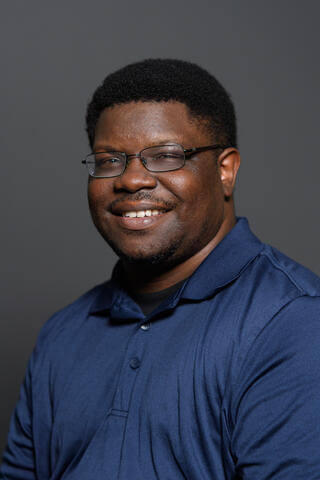My Story | A Transformative Experience | Darian Kearney
by Darian Kearney | PhD Student | Economics
A Transformative Experience at the ASSA 2025 Conference
Graduate school is a journey filled with moments of self-discovery, intellectual rigor, and, at times, uncertainty about the future. As a second-year PhD student in Behavioral Economics at Howard, I have often found myself navigating these challenges while searching for opportunities to grow as a scholar and expand my professional network. The ASSA 2025 Conference in San Francisco provided valuable insights that enhanced my research focus on economics, race, and policy.
The Road to San Francisco
Securing funding for professional development opportunities can be challenging, but I was determined to make this trip a reality. To do so, I sought external funding and was fortunate to receive support from the Howard University Economics Alumni Association (HUEDAA). Their assistance covered my airfare and lodging, easing refine this sentence the financial burden and allowing me to focus on preparing for the conference.
Diving into Cutting-Edge Research
The conference offered a rich exchange of academic discussions and research findings. I attended sessions that directly aligned with my research interests, including panels on R&D and Intellectual Property, The Future of Work and AI, Determinants of Intergenerational Mobility, and Monetary Policy. One of the most impactful sessions examined disparities in venture capital funding for Black entrepreneurs, a topic that resonated deeply with my broader focus on economic equity. Discussions surrounding AI and its implications for labor markets also reinforced the necessity of examining how technological advancements disproportionately affect marginalized communities. A session on intergenerational mobility particularly stood out. It presented comparative analyses of mobility rates in the Netherlands, Denmark, and the United States, highlighting how neighborhood sorting and educational access contribute to economic disparities. Given my own research on how racially motivated trauma influences economic decision-making, these discussions sparked new ideas about incorporating intergenerational factors into my models.
Connecting with Influential Scholars
Beyond the academic sessions, the networking opportunities at ASSA 2025 were invaluable. I had the honor of attending the NEA Westerfield Luncheon, where Dr. Patrick Mason was recognized for his lifetime contributions to economic research. Meeting Dr. Sandy Darity, whose work has been foundational to my research, was a career-defining moment. His insights on racial wealth gaps and stratification economics have shaped my understanding of systemic inequities, and our conversation inspired me to explore new methodological approaches in my work. Additionally, reconnecting with my former thesis advisor at the AEA Late-Night Mixer was a highlight. We discussed my progress in the PhD program, and his advice on navigating the dissertation phase provided much-needed clarity. Conversations with peers from other institutions also gave me a broader perspective on research methodologies and emerging debates in economics.
A Moment of Reflection
One of the most unexpected yet meaningful aspects of the conference was realizing the importance of representation and mentorship in academia. Seeing economists who look like me in positions of influence was both empowering and affirming. The San Francisco Fed Mixer further emphasized this point. Learning from President Mary Daly and engaging with Governor Adriana Kugler about the Fed’s efforts toward inclusivity deepened my resolve to contribute meaningfully to the field. While the formal sessions and networking events were the core of my conference experience, I also took time to explore San Francisco. Visiting the Golden Gate Bridge and taking a ride in a Waymo self-driving car added a personal touch to the trip, reminding me that growth happens both inside and outside of academia.
Looking Ahead
Returning to Howard after the conference, I felt an overwhelming sense of purpose. The knowledge gained and connections forged at ASSA 2025 will undoubtedly shape my research and professional path. Furthermore, the experience strengthened my dedication to leveraging economics for meaningful societal impact. While graduate school can sometimes feel isolating, experiences like this reaffirm my connection to a broader academic community committed to advancing knowledge and promoting economic equity. I am grateful for the support that made this journey possible and look forward to contributing my own insights to future conferences. For any graduate student considering attending ASSA, my advice is simple: seek funding, be intentional about networking, and embrace the opportunity to learn from the best minds in the field. This experience was more than just a conference; it was a moment of affirmation that I am on the right path.

